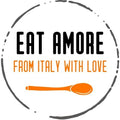This is an informative article, not a cure or remedy for medical conditions or diseases
The Mediterranean diet is healthy and balanced. Typical of the Mediterranean areas, it is recognized by UNESCO as a protected asset and included in the list of "Oral and intangible heritage of humanity".
It is mainly based on foods such as cereals, bread, vegetables, olive oil, fish and wine and presents three fundamental elements: low consumption of saturated fats, abundance of fibers and carbohydrates, and a high intake of monounsaturated fats (that derive mainly from the consumption of olive oil).
 Introduced and studied by the American physiologist and biologist Ancel Keys and was born precisely in Cilento (Italy) in the 1940s. Doctor Keys, who was then following the American troops in Italy, noticed that the Cilento population, feeding on bread, pasta, vegetables, legumes, little meat, fish, fruit and extra virgin olive oil, rarely fell ill with cardiovascular and gastrointestinal diseases, or however much less than the American population.
Introduced and studied by the American physiologist and biologist Ancel Keys and was born precisely in Cilento (Italy) in the 1940s. Doctor Keys, who was then following the American troops in Italy, noticed that the Cilento population, feeding on bread, pasta, vegetables, legumes, little meat, fish, fruit and extra virgin olive oil, rarely fell ill with cardiovascular and gastrointestinal diseases, or however much less than the American population. He then undertook an investigation, which lasted 40 years, to study local eating habits and draw up a specific diet, studying in a scientific way the portions of the Mediterranean diet: 50% of sugars of which: 80% complex (wholemeal bread, pasta, rice, corn) and 20% simple sugars; 20% protein; 30% good fats (olive oil); fruit and vegetables in quantity because they are useful for providing the right amount of vitamins, minerals, antioxidants and fibers.

The structure of the Mediterranean diet is often represented through the so-called food pyramid, where at the base we find foods we can consume more and, at the top, those that we must limit.
At the base of the pyramid there are: water (it is key to drink a lot of it), bread, pasta, potatoes, rice and cereals. Going up in the pyramid we then find fruit, vegetables and legumes. Higher up there are olive oil, milk and dairy products, then again eggs, meat white and fish. At the top we find all foods we must limit our consumption such as red meat, cold cuts and sweets.
Following this diet has considerable benefits for people's health: in fact, while the consumption of olive oil improves memory, helping to prevent diseases such as Alzheimer's and protecting the body from oxidative stress, on the other hand, the daily consumption of fruit, vegetables, legumes, cereals and white meats (instead minimising the consumption of red meats, industrial products and sweets) would help prevent cardiovascular diseases while also protecting us from strokes and heart attacks.
 This diet is considered the best in the world not only because the benefits on the health, but also for the positive impact towards the environment and society.
This diet is considered the best in the world not only because the benefits on the health, but also for the positive impact towards the environment and society.
In fact the Mediterranean diet promotes food awareness, involves the consumption of food respecting its seasonality and building the link with the territory, but also social interaction and conviviality.
Whilst from an economic point of view, following this food model would reduce health expenditure as it would improve the general health of the population, as well as reduce the environmental impact, because based mainly on vegetables and cereals (rather than on meat and animal fats) the Mediterranean diet has an environmental impact 60% lower than North American or North European diets.
Discover Eat Amore products
Click here
![]()




Leave a comment